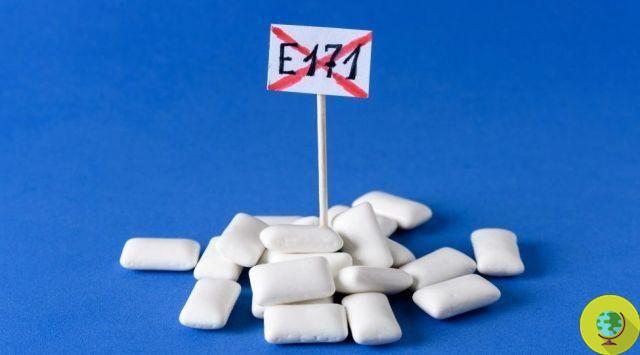
The European Commission's request to ban the use of titanium dioxide as a food additive from 2022 has been approved
Don't store avocado like this: it's dangerousTitanium dioxide (E171) is used as a colorant in a number of food products including candy, chewing gum, broths, soups, and more. However, the European Commission has now decreed the end of this food additive. From 2022 it can no longer be used in the EU with one exception: medicines.
For some time now there has been talk of titanium dioxide in terms of risks to the health of consumers and last May the European Food Safety Authority (EFSA) expressed its opinion by announcing that, based on current scientific knowledge, “It can no longer be considered safe” as a food additive.
The risk highlighted by EFSA with regard to this additive is that genotoxic effects cannot be excluded. As stated on the European Commission website:
EFSA did not conclude that E171 is genotoxic but was unable to establish a maximum Acceptable Daily Intake (ADI) for this food additive, in particular due to possible concerns regarding genotoxicity, and therefore concluded that the safety of the product cannot be confirmed. Genotoxicity is the ability of a substance or any other toxic agent to damage DNA, the genetic material of cells, which can in turn, as a possible consequence, lead to cancer.
The EFSA opinion was therefore decisive for the Member States which on 7 October approved the European Commission's proposal to ban the use of titanium dioxide (E171) as a food additive from 2022. The European Authority, between other, he did not consider it safe even in animal feed. Also read: Titanium dioxide is not even safe as an additive in animal feed. The new opinion of EFSA
Now, unless objections are raised by the end of the year by the Council or the European Parliament, the ban on the use of titanium dioxide as an additive will come into effect at the beginning of 2022. There will then be a phase-out period. substance that will last 6 months, after which a total ban on food products will apply.
The titanium dioxide will still remain in the medicines
As stated in the questions and answers of the European Commission on the topic of titanium dioxide:
In line with the applicable legislation and based on the analysis of the European Medicines Agency (EMA) on the use of titanium dioxide in medicines published on 8 October 2021, the Regulation provides that titanium dioxide remains for the time being in the list of authorized additives to allow its use in medicinal products as a colorant. One of the reasons for this decision is to avoid shortages of medicines containing the dye as this could have an impact on public health, animal health and welfare. The replacement of titanium dioxide will also require investigation and testing of suitable alternatives to ensure that the quality, safety and efficacy of medicines are not adversely affected.
The proposed regulation includes a review clause which states that the situation will have to be reassessed within 3 years from the date of entry into force of the regulation, based on an updated assessment by the EMA.
Meanwhile, the pharmaceutical industry will have to find alternatives to this controversial dye.
Follow us on Telegram | Instagram | Facebook | TikTok | Youtube
Fonte: European Commission
Read also:
- Carcinogenic titanium dioxide in most of the masks analyzed, the complaint of Adiconsum Veneto
- Titanium dioxide: "carcinogenic by inhalation", from February on the label on products containing it
- E171: Mars, Lindt and Haribo say enough to use the titanium dioxide dye in nano-particles
- 2 out of 3 toothpastes contain titanium dioxide, a possible carcinogen. The French analysis


























